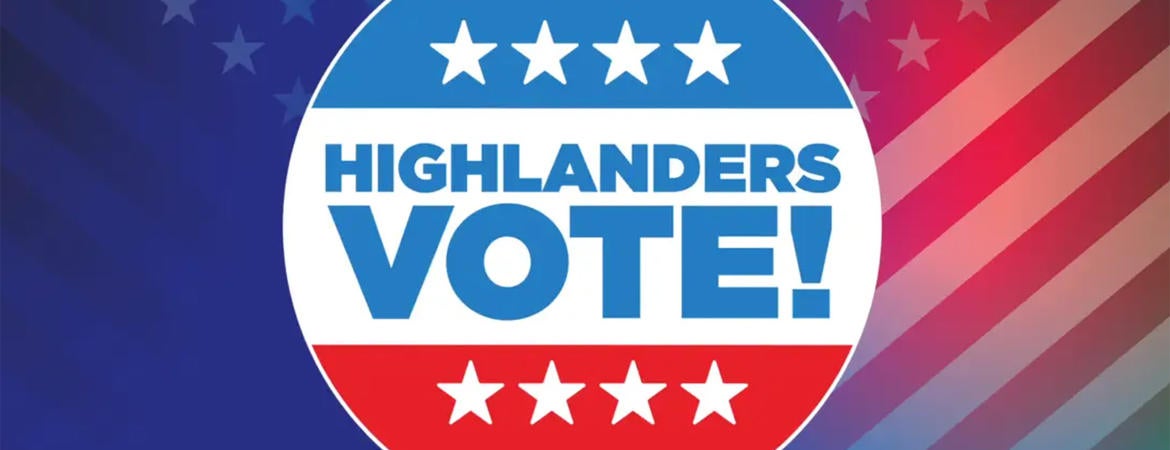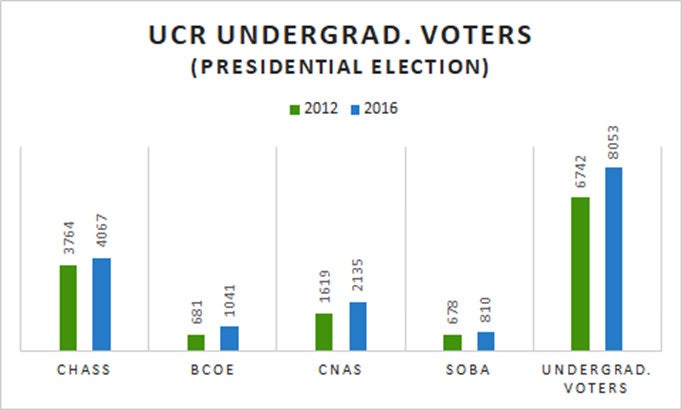College of Humanities, Arts, and Social Sciences

The Nov. 3 election will give voters the opportunity to decide elections for state and federal officials, including the U.S. president. Decisions made by voters will lead towards addressing issues such as COVID-19, the economic recession, and racial injustice.
But historically, university students do not vote in high numbers. Many students attend colleges far from their permanent addresses, making it difficult to vote.
“Voting is difficult,” Kassidee Toguchi said, a fourth-year theatre, film, and production major attending UC Riverside. “I am from Hawai’i and move around all the time. I just haven’t put in the effort to change my address.”
According to a recent poll conducted by YouGov for the University of California, a third of eligible voters are under the age of 25. Decisions made today can have impacts lasting decades, and younger voters are likely to feel the greatest impacts.
“I’ve always voted whenever I can,” Taiyo Hokari said, a fifth-year UCR student majoring in economics. “I missed the 2018 midterm elections because I was traveling, but besides that, I’ve voted every time.”
CHASS students made up about 50% of the 8,053 UCR undergraduate students who voted in the 2016 presidential election, according to UCR’s campus report from the National Study of Learning, Voting and Engagement by Tufts University. UCR is hoping to increase turnout this year by 1 to 2 percent, according to Gerry Medina, Coordinator of Leadership and Service Programs for Student life.
Medina and Student Life are part of the Civic Engagement Workgroup, which works to inform UCR students about the voting process and encourages them to vote. In addition to Student Life, the workgroup includes representatives from Residential Life, Governmental and Community Relations, the Center for Social Innovation, ASUCR, CALPIRG, and the Civic Engagement Student Coalition. More information and resources are available on vote.ucr.edu, managed by Student Life.
Highlanders Vote For Things That Matter from UC Riverside Videos on Vimeo.
UCR does not have an on-campus voting location for the Nov. 3 election, but any UCR student, faculty, or staff member in the Riverside area is encouraged to pick up or drop off a ballot at the Cesar E. Chavez Community Center on University Avenue in Riverside, Medina said. UCR students are able to take the bus to this location for free by taking RTA Route 1, which picks students up from Bannockburn Village campus apartments. Students will have to sign up for the U-PASS program on the Transportation and Parking Services website for free bus rides, Medina said.
Through Instagram campaigns and Zoom talks, Medina is hoping to remind all students and staff to register to vote by Oct. 19. It is also important to re-register your address if you have moved since initially registering, Medina said.
“Voting and other forms of civic engagement are about power,” said Francisco Pedraza, an assistant professor of public policy and political science at UCR. “They’re one of the few ways that ordinary people can shape the world that’s around them. Every opportunity that we pass up means that we missed an opportunity that we could have used to make the world a better place.”
First-time or recently registered voters have not built up the habit of voting, Pedraza said. But students who continue to vote on a regular basis will begin to develop and strengthen the habit of voting.
Voting is also about influence, Pedraza said. One significant way college-aged voters can influence the elections is by talking with their parents and friends about political issues within their community, Pedraza wrote in an academic paper.
Pedraza offered three suggestions for starting a conversation about the 2020 election:
- Talk openly about politics and policies
- Tell others why you are interested in this topic/civic engagement
- Say, “I want you to do the same.”
UCR’s Civic Engagement Workgroup launched a new program called The Civics Hour that occurs every Wednesday at 11 am via Zoom. Students are encouraged to attend by visiting bit.ly/thecivicshour. The Civics Hour features guest speakers from on- and off-campus who discuss important topics such as representation, community empowerment, and more. For more information about the Civic Engagement Workgroup of The Civics Hour program, please contact Gerry Medina at gerardo.medina@ucr.edu.

(Credit: National Study of Learning, Voting and Engagement by Tufts University: UCR)